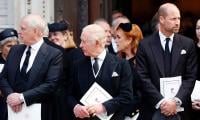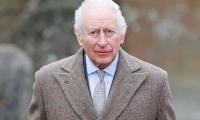Cipher case: Indictment of Imran, Qureshi adjourned till 23rd
Special Court adjourned the indictment of Pakistan Tehreek-e-Insaf (PTI) Chairman Imran Khan and Vice Chairman Shah Mahmood Qureshi in the cipher case till October 23
ISLAMABAD: The Special Court adjourned the indictment of Pakistan Tehreek-e-Insaf (PTI) Chairman Imran Khan and Vice Chairman Shah Mahmood Qureshi in the cipher case till October 23.
The Special Court Judge, Abual Hasnat Zulqarnain, held the in-camera hearing at Rawalpindi’s Adiala Jail. The judge decided to adjourn the hearing till next week and only distributed copies of the charge sheet among the suspects.
State prosecutor Zulfikar Abbas Naqvi was present while the FIA’s team, along with the investigation officer, also appeared before the court. Barrister Salman Safdar and Khalid Yousuf Chaudhry were present as Imran’s counsel. Qureshi’s wife and daughter, Mehreen and Mehr Bano, respectively, also reached the court.
Speaking to the media after the hearing, lawyer Sher Afzal Marwat also confirmed that Imran and Qureshi would be indicted at the next hearing. He recalled that the PTI chief had not accepted the copies of the challan during the previous hearing, so they were distributed on Tuesday. Marwat also talked about the issue of jail facilities. “PTI chairman is kept in a cage-like room and his rights are being violated.” He quoted Judge Zulqarnain as saying that the next hearing would take place in a larger room. The lawyer expressed his apprehension that Imran would be sent to a military court on the basis of Section 164 statements of 22 persons, who held press conferences on the May 9 incidents. Marwat also conveyed the message of the PTI chairman, asking the party workers to show patience.
-
 Prince William Fears Andrew Scandal Could Cast Shadow Over His Future Reign
Prince William Fears Andrew Scandal Could Cast Shadow Over His Future Reign -
 Snoop Dogg Jumps Into David Beckham, Brooklyn Family Feud With Strong Message: ‘No Father Is Perfect’
Snoop Dogg Jumps Into David Beckham, Brooklyn Family Feud With Strong Message: ‘No Father Is Perfect’ -
 'Monarchy Seems Quite Unstable Now', King Charles Warned
'Monarchy Seems Quite Unstable Now', King Charles Warned -
 UK To Bring Netflix, Disney & Amazon Prime Video Under New Broadcasting Rules
UK To Bring Netflix, Disney & Amazon Prime Video Under New Broadcasting Rules -
 Prince William Reacts As Earthshot Prize Dragged Into Epstein Controversy
Prince William Reacts As Earthshot Prize Dragged Into Epstein Controversy -
 Tropical Cyclone Horacio Becomes World’s First Category 5 Superstorm Of 2026: Latest Forecast & Risks Explained
Tropical Cyclone Horacio Becomes World’s First Category 5 Superstorm Of 2026: Latest Forecast & Risks Explained -
 Hilary Duff Recalls Brutal Thing She Did To Husband Matthew Koma After Losing Their Home In Los Angeles Wildfire
Hilary Duff Recalls Brutal Thing She Did To Husband Matthew Koma After Losing Their Home In Los Angeles Wildfire -
 Princess Beatrice, Edo Mapelli Mozzi Fall Into Marital Woes: ‘He Doesn’t Want Her Seen With Andrew’
Princess Beatrice, Edo Mapelli Mozzi Fall Into Marital Woes: ‘He Doesn’t Want Her Seen With Andrew’ -
 Meta’s Internal Memo Reveals How Executives Ignore Safety Warnings To Push Messenger Encryption Rollout Despite Risks To Teen Safety
Meta’s Internal Memo Reveals How Executives Ignore Safety Warnings To Push Messenger Encryption Rollout Despite Risks To Teen Safety -
 Robert Carradine's Shocking Suicide Answer 'lies' In Brother David Old Tragic Incident
Robert Carradine's Shocking Suicide Answer 'lies' In Brother David Old Tragic Incident -
 'CIA' Star Tom Ellis Drops Bombshell Reason Why He Stayed Away From 'FBI': I Know What They Do'
'CIA' Star Tom Ellis Drops Bombshell Reason Why He Stayed Away From 'FBI': I Know What They Do' -
 Biographer Calls Andrew National Security Risk: ‘This Huge Can Of Worms Is Getting Closer To King’
Biographer Calls Andrew National Security Risk: ‘This Huge Can Of Worms Is Getting Closer To King’ -
 DeepSeek Under Fire: Anthropic Accuses Chinese AI Firm Of Misusing Claude For Unauthorized Model Training
DeepSeek Under Fire: Anthropic Accuses Chinese AI Firm Of Misusing Claude For Unauthorized Model Training -
 Would You Drive In A Driverless Taxi? AI-powered Robotaxis Roll Out In London Amid Growing Debates Over Road Safety, Passenger Convenience
Would You Drive In A Driverless Taxi? AI-powered Robotaxis Roll Out In London Amid Growing Debates Over Road Safety, Passenger Convenience -
 Trump’s Tariff Plan: 10 Percent Rate Takes Effect Despite 15 Percent Announcement Following Supreme Court Ruling
Trump’s Tariff Plan: 10 Percent Rate Takes Effect Despite 15 Percent Announcement Following Supreme Court Ruling -
 Eric Church Reveals How Vince Gill Made His Brother Barndon's Death 'a New Normal'
Eric Church Reveals How Vince Gill Made His Brother Barndon's Death 'a New Normal'




